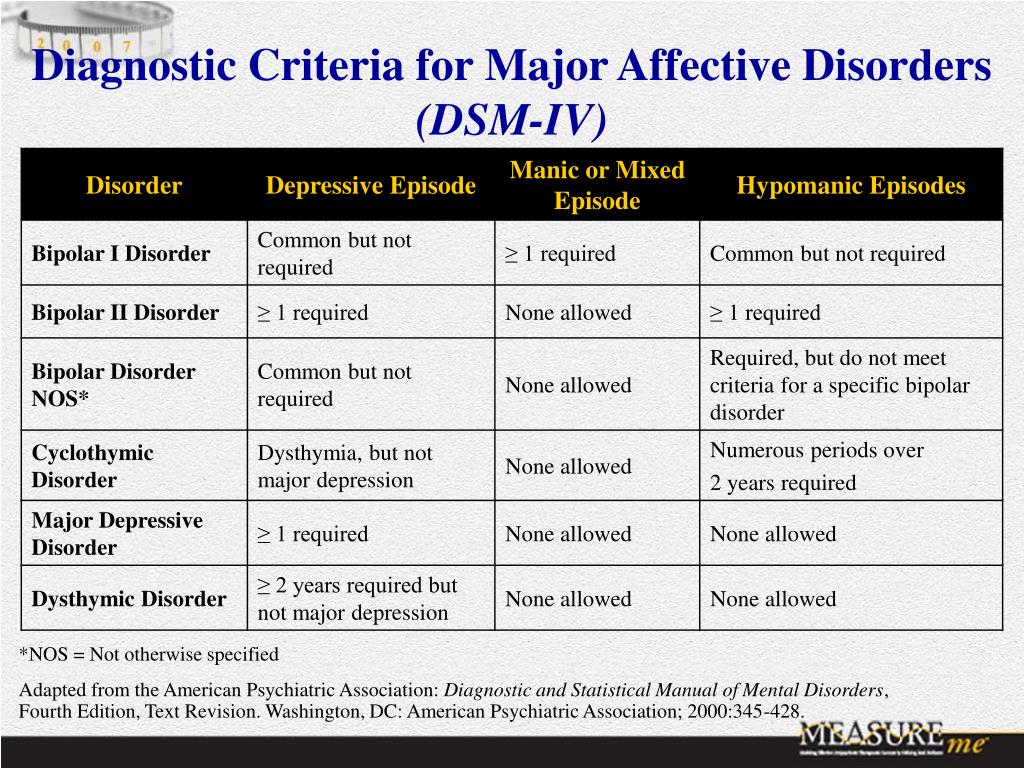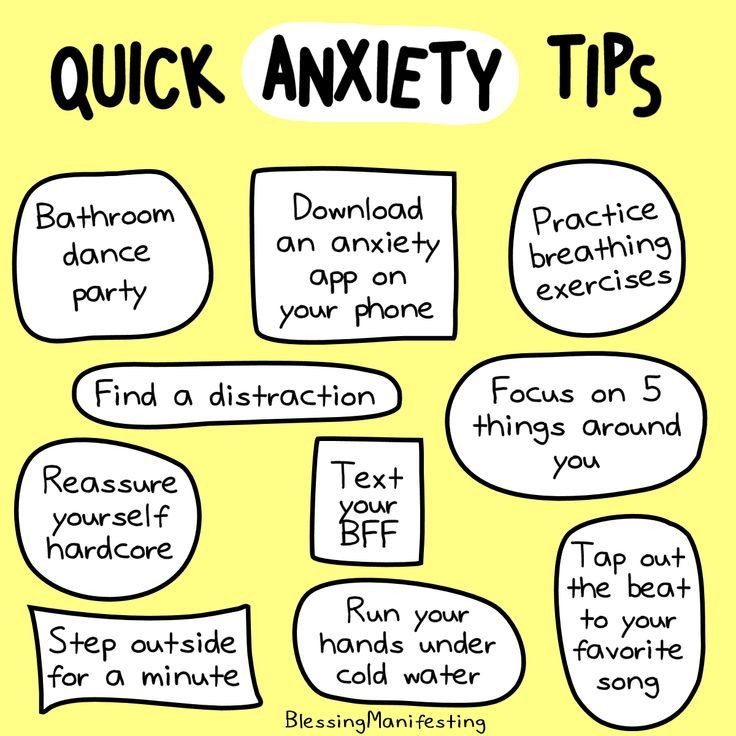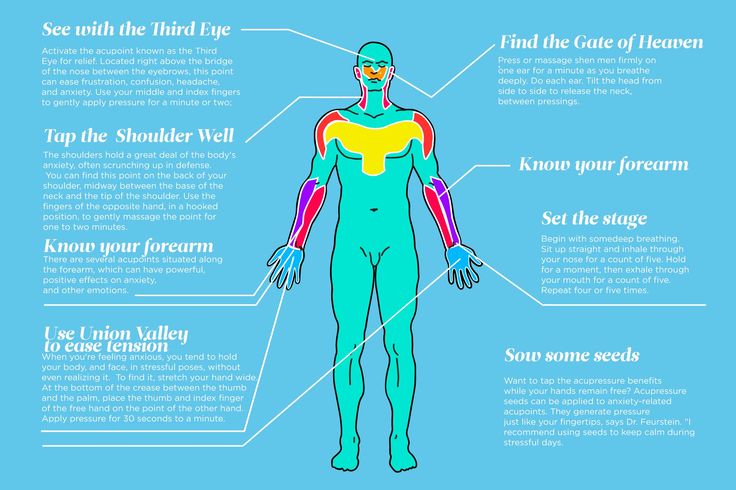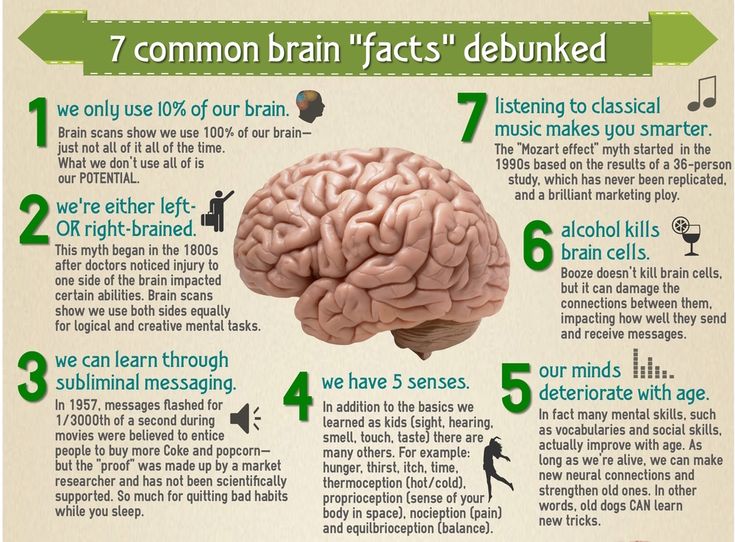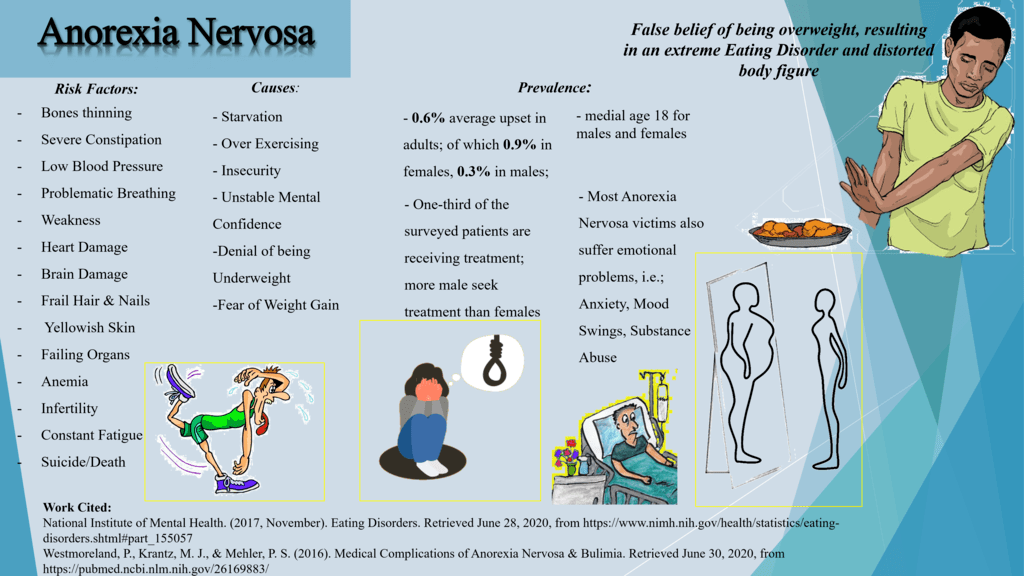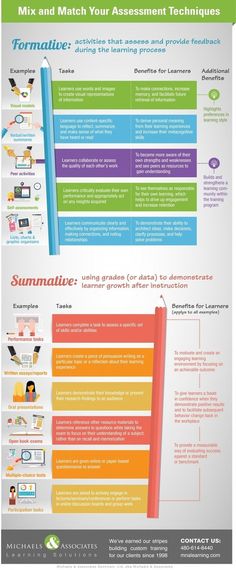Workplace accommodations for bipolar disorder
Bipolar Disorder Reasonable Workplace Accommondations
By Candida Fink, MD on December 29, 2009
(This is Part IV in a five-part series on bipolar. To catch up, see Bipolar on the Job Part I: “Will I Be Able to Return to Work?” Part II: “To Tell or Not to Tell?” and Part III, “How to Talk about Bipolar Disorder.” )
When you receive a bipolar diagnosis (and disclose it to your employer), you gain protection under the law via the Americans with Disabilities Act (ADA). As long as your employer is on notice of the problem and you’ve expressed some desire to get help, your employer is required to engage in a dialogue with you to determine whether reasonable accommodations would enable you to perform the essential functions of the job.
When most people first hear about the ADA, they mistakenly assume that it’s restricted to physical disabilities, such as not being able to lift something heavy or walk up a flight of stairs. However, as Substance Abuse and Mental Health Services Administration (SAMHSA) points out in its online publication entitled “Filing an ADA Employment Discrimination Charge: Making It Work for You“:
… the law is for people with psychiatric disabilities, too.
It forbids discrimination against people with both physical and mental disabilities in employment, transportation, public facilities, and public communications. The ADA’s employment requirements are especially important for people with psychiatric disabilities. This is because many employers share society’s fear, prejudices, and lack of information about mental illness.
To qualify for protection under the ADA, your situation must meet the following conditions. You…
- Have a physical or mental impairment that substantially limits one or more of your major life activities
- Have a record of such an impairment (your diagnosis, for example) or are regarded as having such an impairment
- Are otherwise qualified to perform the job duties; that is, you must meet the skill, experience, education, and other job-related requirements of the position, and with reasonable accommodations be able to perform the essential functions of the job
This brings us to the question of accommodations, and reasonable ones at that.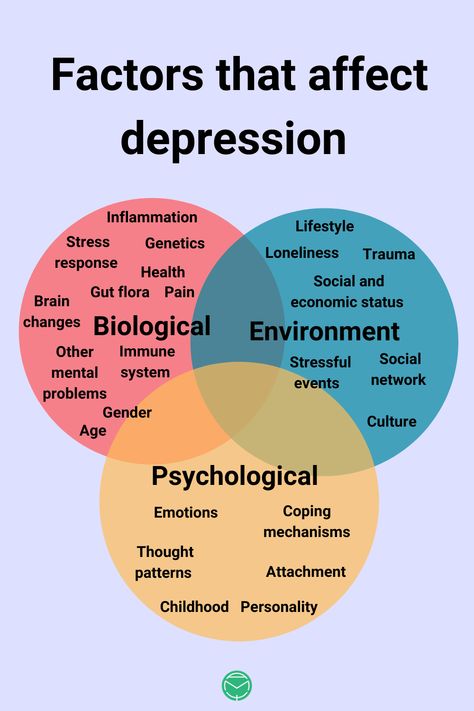 Here’s SAMHSA’s definition of reasonable accommodations:
Here’s SAMHSA’s definition of reasonable accommodations:
Accommodations are changes to the work environment or the way things are usually done that allow an individual with a disability to enjoy equal employment opportunities. An accommodation is not considered reasonable if it creates an “undue hardship” for the employer. Undue hardship refers not only to financial hardship, but also to accommodations that are overly extensive or disruptive, or that would change the nature or operation of a business.
The U.S. Equal Employment Opportunity Commission offers a free booklet on what are considered “reasonable accommodations” complete with instructions on how to go about requesting them: Enforcement Guidance: Reasonable Accommodation and Undue Hardship Under the Americans with Disabilities Act
. Before you spend the weekend wading through that publication, however, you might want to check out the Job Accommodation Network’s “Accommodation and Compliance Series: Employees with Bipolar Disorder” by Kendra M.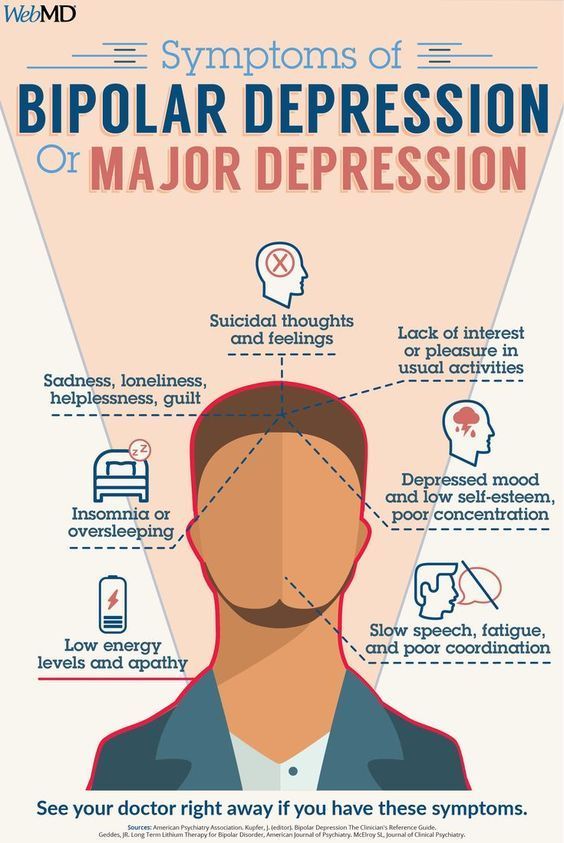 Duckworth. This publication can help you identify accommodations that people with bipolar disorder find particularly helpful. The article groups the accommodations to address particular issues, as presented in the following sections.
Duckworth. This publication can help you identify accommodations that people with bipolar disorder find particularly helpful. The article groups the accommodations to address particular issues, as presented in the following sections.
Maintaining Stamina during the Workday
- Flexible scheduling
- Allow longer or more frequent breaks
- Provide additional time to learn new responsibilities
- Provide self-paced work load
- Provide backup coverage for when the employee needs to take breaks
- Allow time off for counseling
- Allow for use of supportive employment and job coaches
- Allow employee to work from home during part of the day or week
- Part time work schedules
Maintaining Concentration
- Reduce distractions in the work area
- Provide space enclosures or private office
- Allow for use of white noise or environmental sound machines
- Increase natural lighting or provide full spectrum lighting
- Allow the employee to work from home and provide necessary equipment
- Plan for uninterrupted work time
- Allow for frequent breaks
- Divide large assignments into smaller tasks and goals
- Restructure job to include only essential functions
Difficulty Staying Organized and Meeting Deadlines
- Make daily To-Do lists and check items off as they are completed
- Use several calendars to mark meetings and deadlines or one central one, depending on circumstances and individual needs (multiple organizing tools can sometimes be counter-therapeutic overwhelming or confusing)
- Remind employee of important deadlines
- Use electronic organizers
- Divide large assignments into smaller tasks and goals
Working Effectively with Supervisors
- Provide positive praise and reinforcement
- Provide written job instructions
- Develop written work agreements including the agreed upon accommodations, clear expectations of responsibilities and the consequences of not meeting performance standards
- Allow for open communication to managers and supervisors
- Establish written long term and short term goals
- Develop strategies to deal with problems before they arise
- Develop a procedure to evaluate the effectiveness of the accommodation
Difficulty Handling Stress and Emotions
- Provide praise and positive reinforcement
- Refer to counseling and employee assistance programs
- Allow telephone calls during work hours to doctors and others for needed support
- Provide sensitivity training to coworkers and supervisors
- Allow the presence of a support animal
- Reinforce peer supports
Attendance Issues
- Provide flexible leave for health problems
- Provide a self-paced work load and flexible hours
- Allow employee to work from home
- Provide part-time work schedule
- Allow the employee to make up time missed
Issues of Change
- Recognize that a change in the office environment or of supervisors may be difficult for a person with bipolar disorder
- Maintain open channels of communications between the employee and the new and old supervisor in order to ensure an effective transition
- Provide weekly or monthly meetings with the employee to discuss workplace issues and production level
We would like to hear from anyone who’s had experience in this area employees with bipolar, employers who have made accommodations, attorneys, psychiatrists, therapists, and anyone else who can offer some valuable insight, advice, or tips about implementing reasonable workplace accommodations for employees with bipolar disorder.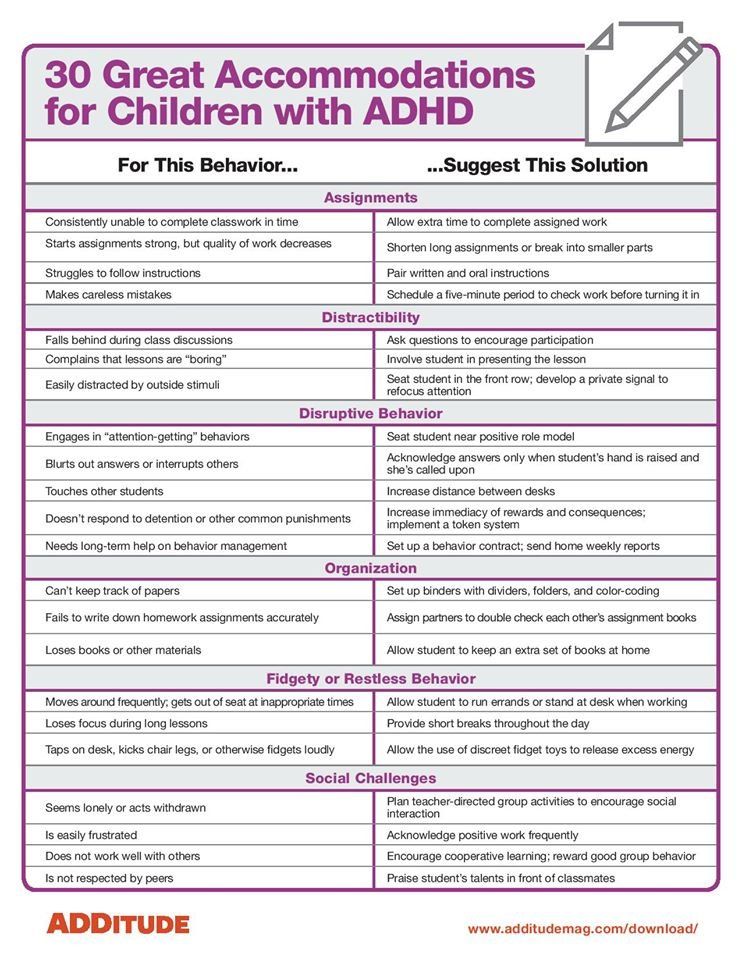
Join us next week for Part V of this series: “What If I Can’t Work? Protecting Your Rights” when we offer some suggestions on protecting your rights as an employee if you find yourself in a position in which you can no longer perform your job duties even with reasonable accommodations.
Bipolar: Disability Requiring Accommodation for Work?
If you have an employee who is bipolar, is that considered to be a disability? Must you provide an accommodation for work? In a CER webinar titled “Bipolar Employees: HR’s Legal and Practical Accommodation Roadmap,” Maureen Duffy, Susan G. Fentin, and Tom Wootton outlined some of the potential frustrations of having a bipolar employee, and explained that the ADAAA clearly includes bipolar as a disability. What does this mean for you? How can you provide an accommodation for work for bipolar disability?
Bipolar Disorder in the Workplace
“Unfortunately a huge majority of bipolar people can’t work at all,” Wootton told us during the webinar.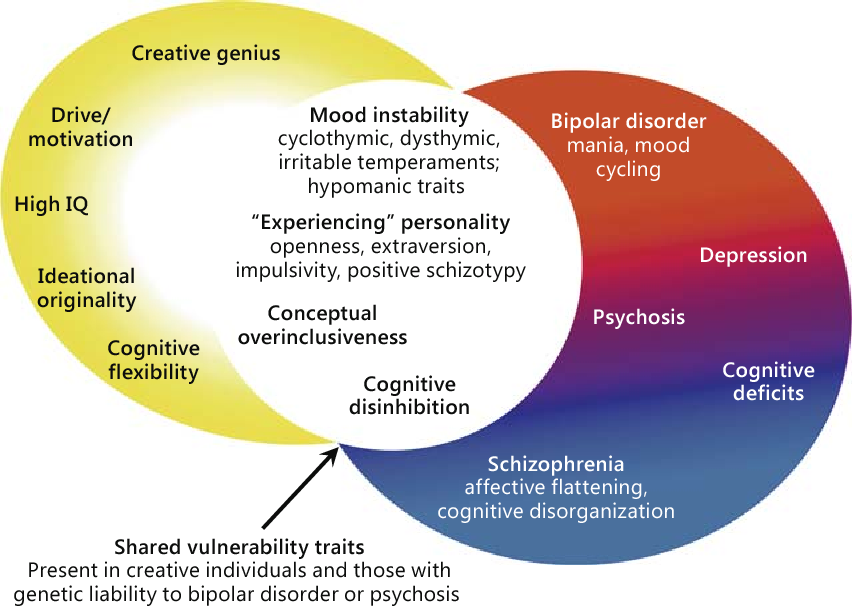 There aren’t even accurate statistics regarding bipolar disorder prevalence in workplace, which is at least partially due to the stigma surrounding it, which causes some to hide it. Additionally, many bipolar individuals are still very functional and never end up with a diagnosis.
There aren’t even accurate statistics regarding bipolar disorder prevalence in workplace, which is at least partially due to the stigma surrounding it, which causes some to hide it. Additionally, many bipolar individuals are still very functional and never end up with a diagnosis.
When you have a bipolar employee, it’s often a tough call whether this is an asset or liability. Inconsistency in performance and behavior is an employer’s greatest frustration. This can result in a situation where your greatest star and biggest problem is wrapped up into the same employee. How can employers handle employees who are both troublesome and valuable? What laws apply?
First and foremost is the ADAAA – the Americans with Disabilities Act Amendment Act. While others apply, this has significant implications. The ADAAA expanded the definition of disability; now bipolar and other mental disorders are specifically listed in the statute and accompanying regulations as disabilities. This means that employers have an obligation to not discriminate nor harass someone with bipolar disorder.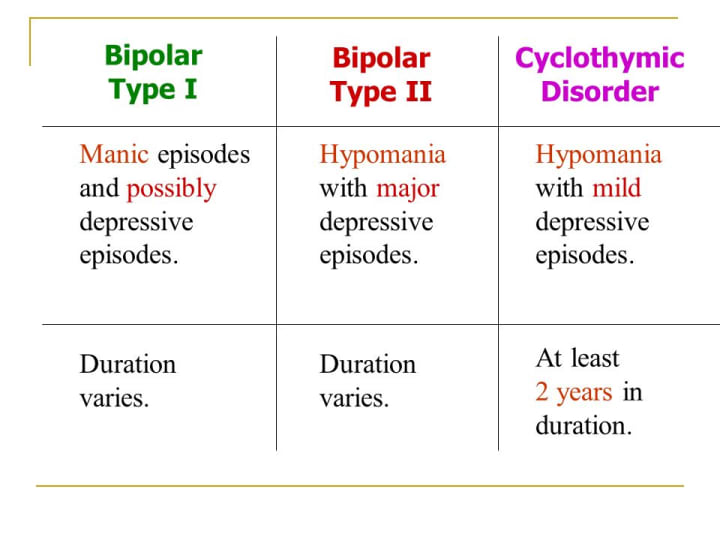 Employers are also required to reasonably accommodate that individual, including conducting an interactive dialogue to determine what accommodations might be possible.
Employers are also required to reasonably accommodate that individual, including conducting an interactive dialogue to determine what accommodations might be possible.
Bipolar Disability: What Accommodation for Work can be Made?
When an employer learns of an employee with bipolar disability, what accommodation for work can be made? Must you make any accommodation at all for someone who could become difficult to work with or disruptive? Your first obligation, Fentin advised, “is to engage in the interactive process to determine if there are any reasonable accommodations that will allow the employee to perform the essential functions of his or her job.” That said, remember that the employee need not use any “magic words” to request an accommodation. If the employer had enough information to identify bipolar disability as an issue, then there is an obligation to inquire further and determine what accommodation for work can be made.
There are actually many possible reasonable accommodations that can be made for bipolar disability, including:
- Reduced work schedule/flex time/later starting time
- Regular time off for treatment
- Change in work location
- Transfer to another vacant position for which the employee is qualified and which would more easily accommodate disabling conditions
- Leave of absence for a definite period (if the leave will allow the employee to return to work and perform essential functions of position)
- Maximum privacy and a distraction-free work setting
- Working from home
- Windows, natural lighting, full spectrum artificial lighting
- Regular breaks
However, the accommodation for work must be reasonable.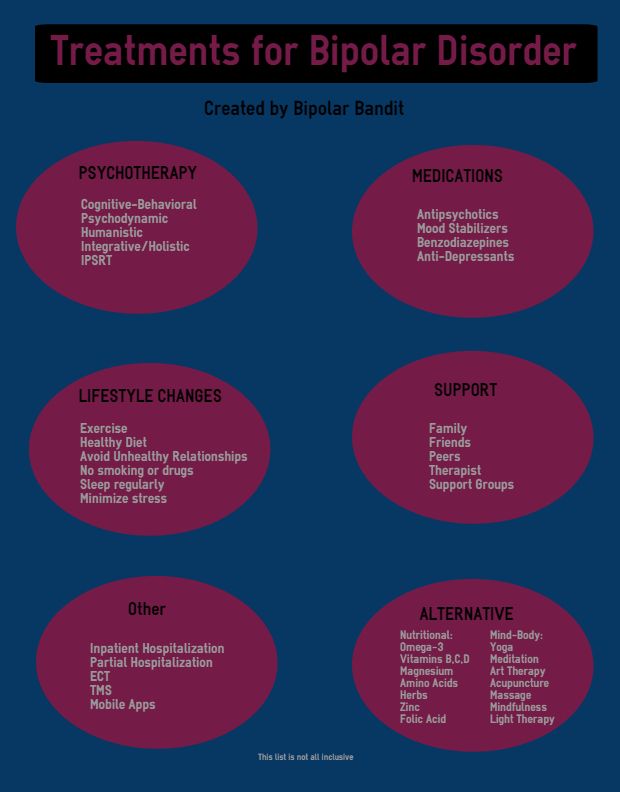 You’re not required to do anything unreasonable, such as:
You’re not required to do anything unreasonable, such as:
- Eliminating essential functions
- Tolerating irregular, erratic, or unreliable attendance
- Leave of absence for an indefinite period of time
- Anything that would put so severe an economic hardship on company as to threaten continued viability
When you’re faced with determining reasonable accommodation for work for someone with a bipolar disability, be sure to analyze the details on a case-by-case basis.
Tips for Making Accommodations for Work for Employees with Bipolar Disability
In the webinar, the presenters gave us some tips on making accommodations for work for employees with bipolar disability:
- “Any accommodations that you’re going to offer to the bipolar employee need to be thought through carefully, and should really be developed in collaboration with the bipolar employee,” Fentin advised. You also have to be sure that you’re being consistent in terms of what accommodations you offer and what your expectations are.

- Remember that dual diagnosis is a significant issue. A tendency toward substance abuse exists frequently for bipolar individuals. This is something that an employer needs to be aware of – condoning drinking by allowing it in expense reports is dangerous, for example. You may want to consider adequate controls.
- Disability is not an excuse for misconduct, even if the disability is the reason behind the misconduct. The employee may not be “qualified” if they cannot perform the essential functions.
- Consider whether a leave of absence is reasonable accommodation under the circumstances.
- Always consult with counsel on these issues.
Attorney Susan G. Fentin is a partner in the labor and employment firm of Skoler, Abbot & Presser, P.C. Her practice concentrates on labor and employment counseling, advising large and small employers on their responsibilities and obligations under state and federal employment laws, and representing employers before state and federal agencies and in court.
Tom Wootton is the author of “The Bipolar Advantage,” “The Depression Advantage” and “Bipolar In Order.” (www.bipolaradvantage.com) He has developed a series of workshops dealing with depression and bipolar disorder, and is considered a leading consumer advocate and speaker; he has been giving talks to consumer groups, mental health leaders, and doctors.
Maureen Duffy, Ph.D., is a practicing couples and family therapist, consultant, educator, and author (she is the co-author of two books and has published over 40 book chapters and journal articles). Maureen is the relationship education coordinator for Bipolar Advantage and was a recent keynote speaker for the National Alliance on Mental Illness (NAMI) Pennsylvania Annual Conference.
Jobs for people with bipolar disorder | Medical Insider
There is no one-size-fits-all profession for people with bipolar disorder. The choice of a person's profession depends on several factors, including his abilities, interests and strengths.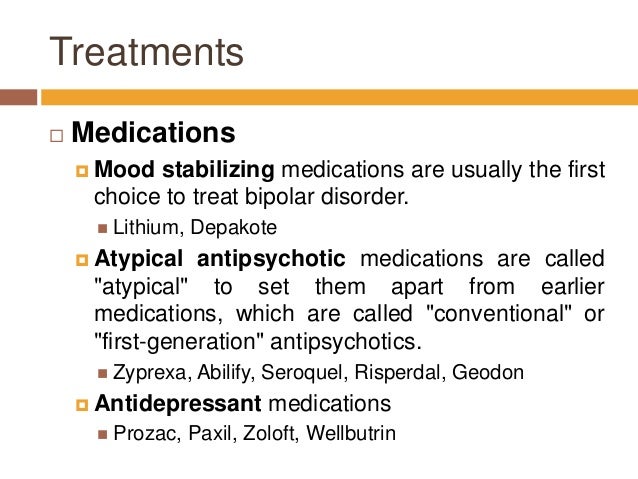
However, some qualities at work may be preferable for people with bipolar disorder. For example, doctors recommend looking for work in a calm, quiet environment where the work will be less stressful.
What kind of work is suitable for people with bipolar disorder? nine0007
Bipolar disorder is a condition in which people experience marked shifts in activity, mood, and energy that affect their ability to perform everyday tasks. It is difficult to find a profession for a person with bipolar disorder. However, people may be looking for specific job features that include:
Low stress levels
Bipolar disorder causes marked shifts in mood and energy levels. Stress can cause these shifts. Because of this, doctors may advise people to avoid or minimize stress whenever possible. Career choice can play an important role in this. Low-stress jobs that don't require rapidly changing demands and tight deadlines can help people minimize the stress they experience every day.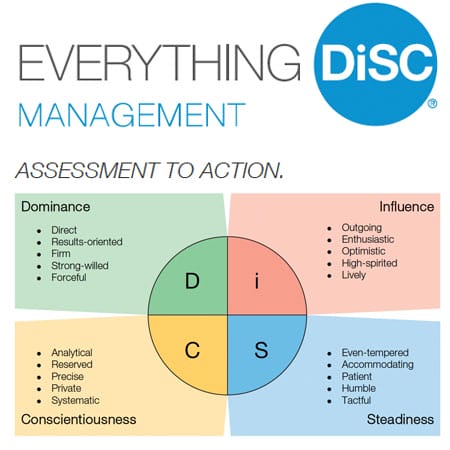 nine0003
nine0003
Peaceful environment
Similarly, a calm and quiet workplace can help a person feel more relaxed. Depending on the person, this could mean looking for a company with a laid-back culture, working in a relaxed environment, or both.
Flexible day work
Sleep deprivation is another factor that can increase the likelihood of bipolar episodes. So it's best to look for jobs with daytime hours or shifts and avoid those with schedules that interfere with sleep. Because people with bipolar disorder can have "good days" and "bad days," some people may prioritize jobs with flexible hours or choose to work part-time. nine0003
Creativity
A 2011 study reports that there is an association between creativity and bipolar disorder. Some of the evidence for this relationship comes from biographies of famous musicians, poets, and writers who showed signs of illness. Among these people are the composer Pyotr Ilyich Tchaikovsky and the writer Charles Dickens.
Some people with bipolar disorder may find that they will not succeed in their careers if they do not have a creative outlet. This outlet may come from the job itself or from a job that allows them to pursue creative projects outside of work. nine0003
According to personal strengths and interests
Even if a job has the qualities listed above, a person may be dissatisfied with their profession if it does not match their strengths and interests. A job that a person feels lacks purpose or doesn't allow them to make the most of their skills can be stressful in its own way.
Best Jobs for People with Bipolar Disorder
Everyone is unique and has different wants and needs when it comes to careers. However, people who are not sure what might be right for them can start by looking at jobs that are likely to meet the above criteria. Some activities that can be associated with a quiet and peaceful environment include:
- Librarian
- Archivist
- Corator of a museum or gallery
- Gardener or landscape designer
- Yoga teacher or meditation
- Massage therapist or spa-therapist
to types
jobs that usually have a day or part-time:
- Office clerk
- Accountant
- Expediator
- Corrector
WILLS WORK WORK WORK IN BEPOLLAY 9000
Occupations that may not be suitable for people with bipolar disorder include:
- : This job can be stressful because it requires a fast pace and involves a high level of community interaction.
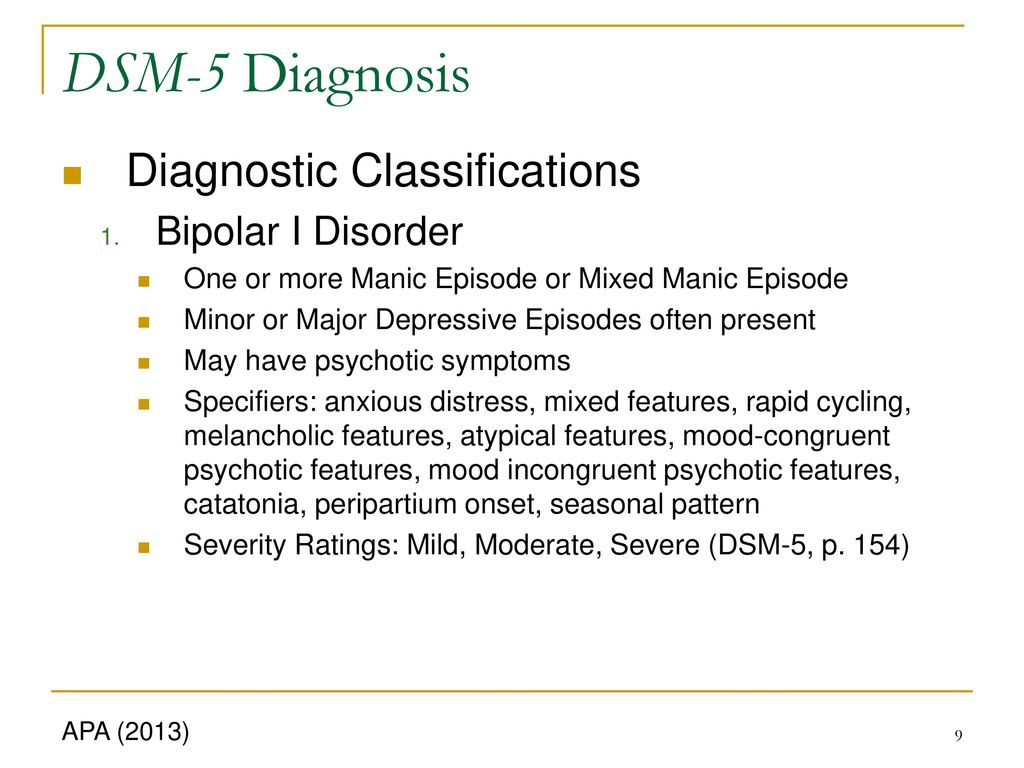 People in this line of work often have to deal with complaints and work in the evenings. Some roles are also unstable - for example, waiters may have to rely on tips as their income. nine0038
People in this line of work often have to deal with complaints and work in the evenings. Some roles are also unstable - for example, waiters may have to rely on tips as their income. nine0038 - : Firefighters, police officers and medics have a significant responsibility to protect people's lives, which can be stressful. These roles also often include shift work and 24/7 duty.
- : A 2019 study notes that teachers report more stress than people in other professions. This stress can lead to burnout or emotional exhaustion. For people with bipolar disorder who want to teach, it may be better to take virtual classes online or try in-person classes. nine0038
- : The insecurity of this job can make it stressful. In addition, theater actors can work irregular hours, and performances last until the evening.
Tips for Managing Bipolar Disorder at Work:
- : A person should be aware of the emotional and physical signs of stress throughout the day. They may include a feeling of tension, clenched teeth, or shallow breathing.
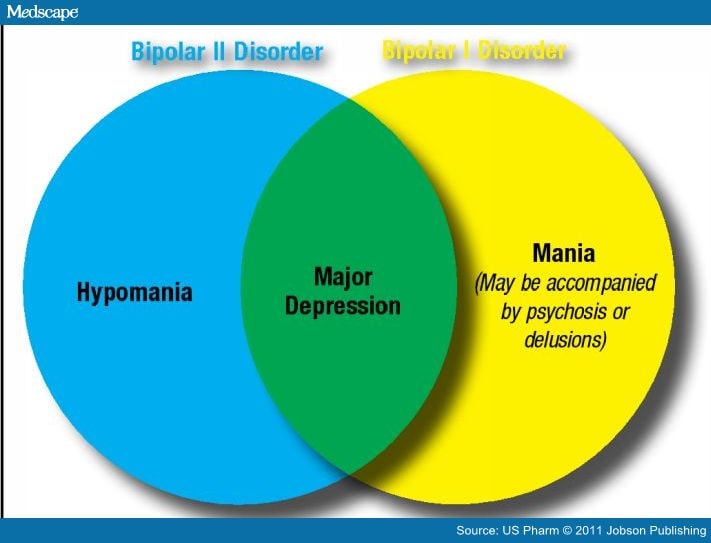
- : It's wise to take short breaks whenever stress arises, and plan ahead for them whenever a difficult task arises. For example, a person might schedule a break after a big meeting. nine0038
- : Trying to combine multiple requirements can be stressful. Instead, trying to check off one item on your to-do list at a time is more convenient.
- : If it is safe to do so, the person may report their diagnosis to their employer. This can help employers make adjustments so that a person has less stress or more flexibility on days they feel unwell.
- : It is important to continue any treatment or medication prescribed by your doctor to reduce bipolar episodes, including while you work. If a person is concerned that their medication may cause side effects, they can discuss this with their employer to let them know. nine0038
- : If a person notices early signs of a crisis, they should not hesitate to seek help. He should speak to a mental health professional as soon as possible.
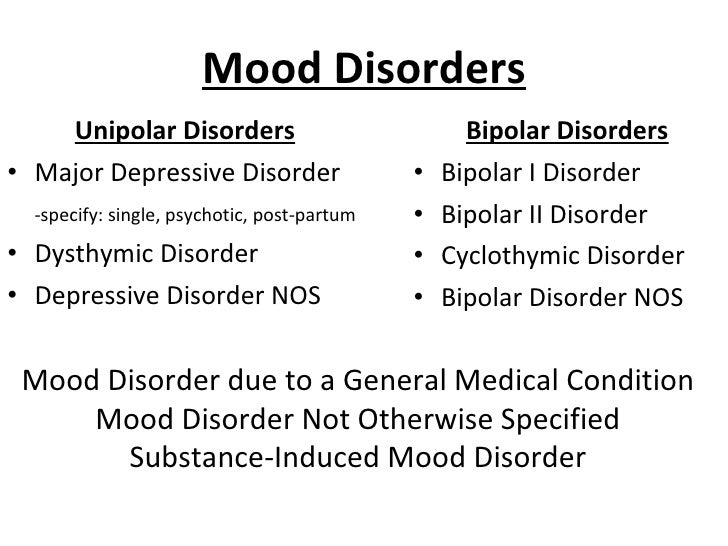 People should have a plan in case this happens. They may involve their employer, colleagues, or family in creating the plan, if that would be helpful.
People should have a plan in case this happens. They may involve their employer, colleagues, or family in creating the plan, if that would be helpful.
A person's self-care outside of work can also help them cope with tasks at work.
Doctors recommend:
- regular exercise
- a balanced diet
- avoiding alcohol and substance use
- getting enough sleep and maintaining a regular sleep schedule
- taking prescription medication
Bipolar disorder and disability
is a mental health condition. In some cases, it can affect a person's ability to function in daily life to the point of becoming a disability. nine0003
Protection for people with bipolar disorder:
- Protection against discrimination: An employer cannot deny a person a job, promotion, or training opportunity because of bipolar disorder.
- The right to privacy. People with bipolar disorder are not required to disclose their diagnosis to an employer if they do not want to.
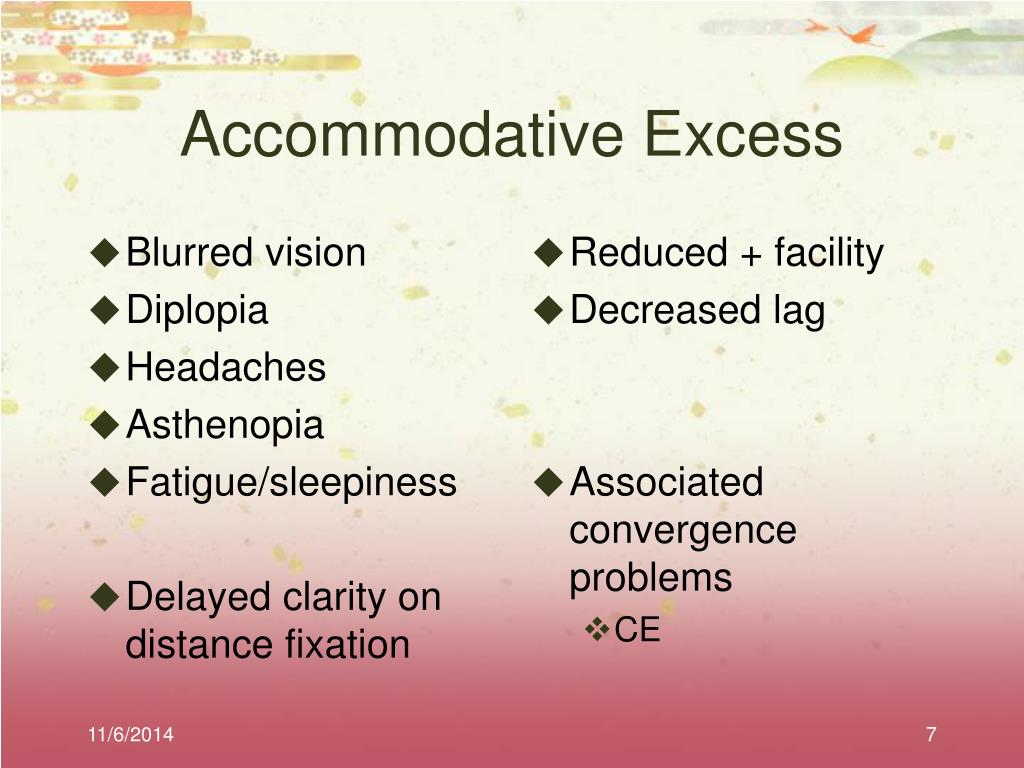
- The right to reasonable accommodation: this means that the employer must change the working environment to help the person cope with their condition, unless this creates undue hardship for the employer. nine0038
Some examples of accommodations that can help people with bipolar disorder include:
- flexible work hours
- day shifts
- quiet office or cubicle to work
- frequent short breaks
- believes that he may need help in applying for a job, he does not need to tell the employer about it.
Conclusion
There is no single job that fits all people with bipolar disorder. Some people may find that they can excel in many professions. However, since sleep deprivation and stress can be triggers for symptoms, quiet occupations with low daytime stress levels are more appropriate. nine0003
There are many jobs that people with bipolar disorder might find useful, from creative to technical roles. The individual needs, interests and skills of the individual should play a role in the decision.
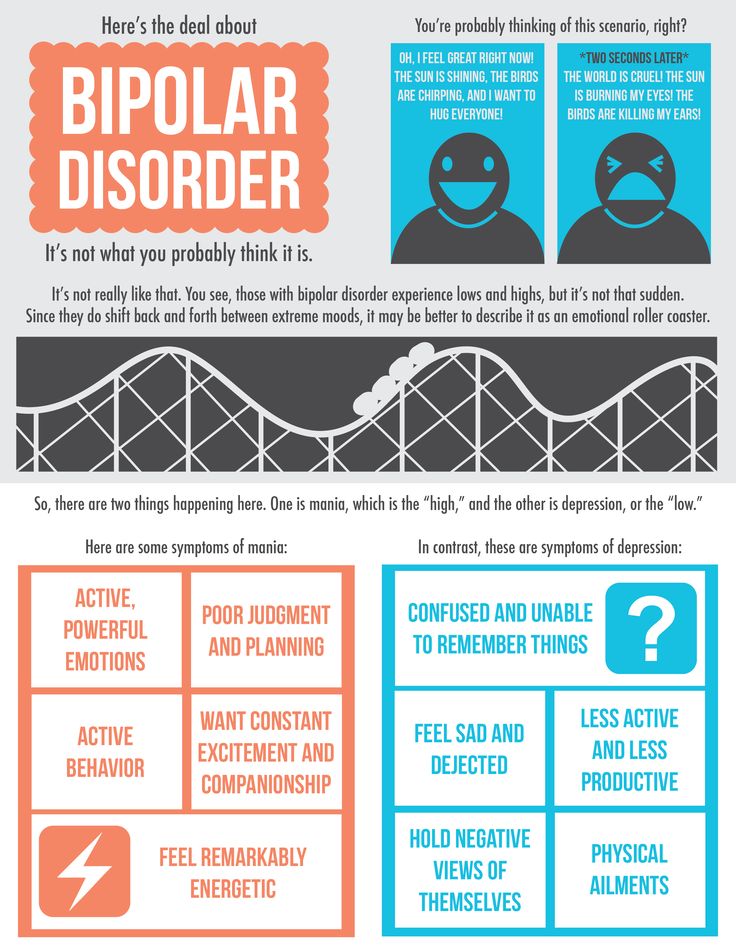 When applying for a job, it is important to research the company, its methods, and what the role entails. It's also a good idea for the person to consider their strengths and the things they find difficult. A career counselor can help you find and apply for the right position. nine0003
When applying for a job, it is important to research the company, its methods, and what the role entails. It's also a good idea for the person to consider their strengths and the things they find difficult. A career counselor can help you find and apply for the right position. nine0003 Related article: What is the difference between bipolar disorder and schizophrenia.
Bipolarity and Work: Problems, Adjustment and Stress
Contents
Overview
Bipolar disorder is a mental illness that can cause severe mood swings.
People with bipolar disorder can "progress" from high mood (so-called mania i hypomania) to extremely bad mood (depression). These mood swings, along with other symptoms of bipolar disorder, can create a unique set of challenges in personal and social life. nine0003
Bipolar disorder and other psychiatric disorders can potentially make it difficult to find and keep a job or work at work, especially if symptoms currently affect daily activities.
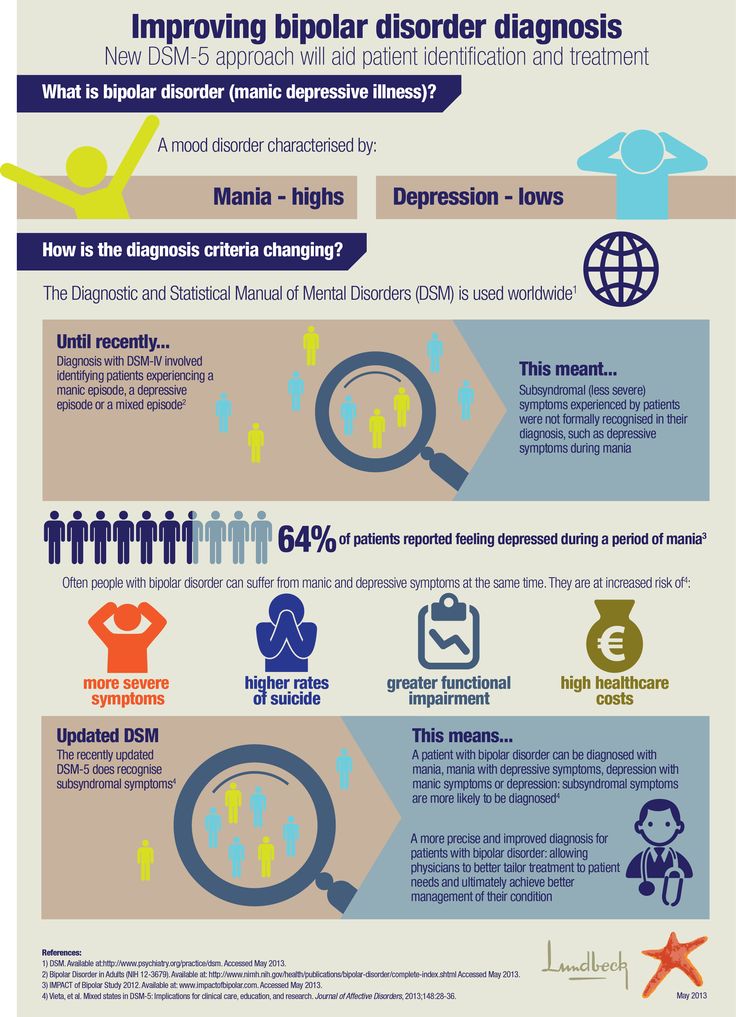
In one study, 88 percent of people with bipolar disorder or depression said their condition affected their work performance. Eye 58 seat of them completely stop working outside the home.
There are many problems associated with bipolar disorder and keeping a job. However, experts say that work can actually be of great benefit to people with bipolar disorder. nine0003
Work can give people a sense of structure, reduce depression, and increase self-confidence. It can help improve your overall mood and give you strength.
There is no one size fits all job. This is also true for people with bipolar disorder.
Instead, people with this condition should look for a job that suits them personally. Here are a few things to consider when choosing the right job:
What is the working environment like? nine0003
Will this job support your lifestyle and help you grow as a person, or will it be too stressful and stressful?
For many people with bipolar disorder, a quiet and peaceful workplace can help them maintain a regular schedule, which can improve overall functioning.

What is the schedule?
Part-time work with flexible hours may be helpful for people with bipolar disorder. It may also be helpful to work during the day. nine0003
Night and night shifts or work that requires you to be on call at night may not be a good idea because sleep is very important. Maintaining a normal sleep/wake pattern may be helpful in bipolar disorder.
What will your partners be like?
Look for a job where your colleagues' values align with yours and a work-life balance that is important to your overall health and well-being.
Having colleagues who support you also helps you feel understood and deal with stressful situations, so look for those who will support you.
Creative work?
Many people with bipolar disorder work best when they have a job where they can be creative. You may find it helpful to find a job where you can be creative or a job that gives you enough free time to be creative. projects. nine0003
After answering these questions, dig a little deeper to try to understand yourself better and thus find a job that you enjoy.

Think about your own:
- Interests
- Strengths and abilities
- Skills
- Character Lesse
- Vridity
- Physical Health
- restrictions, triggers and barriers
after you have stunned their choice do an even deeper career research. You can view About*NET Learn more about the characteristics of each job, including:
- job duties
- required skills
- education or training required
- license or certification required
- normal working hours
- working conditions (physical needs, environment and stress level)
- salary and benefits
- promotions
- job prospects
If you can't find a job that suits you, you might consider starting your own business. You can create your own business, which provides more creativity and flexibility than if you were working for someone else. nine0003
However, running your business comes with its own set of challenges.
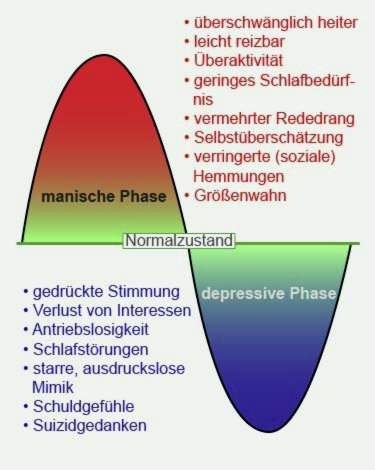 Depending on what you think you need, you may prefer a regular, structured schedule if you live with bipolar disorder.
Depending on what you think you need, you may prefer a regular, structured schedule if you live with bipolar disorder. Some working conditions can be unpredictable, demanding and difficult. All of this can cause stress.
For people with bipolar disorder, this stress can have an overall negative impact on physical and mental health. nine0003
To manage stress at work:
- take frequent and regular breaks, even if you are not sure you need to take breaks
- use relaxation techniques such as deep breathing i meditate to reduce stress
- listen to relaxing music or record sounds nature
- walk around the block on the handle
- talk to your support network if you need help
- find time for therapy and treatment as needed
Living a healthy lifestyle can also help you reduce stress at work. Exercise regularly, eat healthy, get enough sleep, and be sure to stick to your treatment plan.
You are not required by law to give your employer any health information unless you put others at risk.
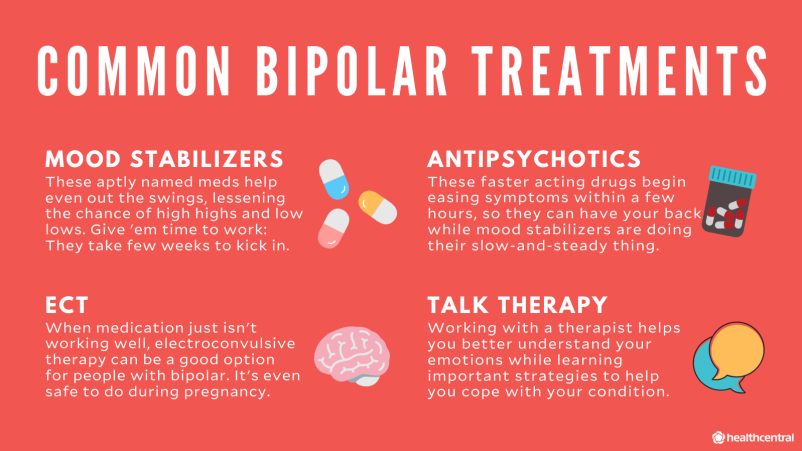
Although people today tend to be more open to discussing mental illness, there is still stigma. It's not normal, but people may treat you differently if they know you have a mental disorder, including the people you work with. nine0003
On the other hand, there are many people who understand mental health conditions and the problems they can cause at work. For this reason, in some cases it may actually be helpful for you to share your bipolar disorder diagnosis with your supervisor and Human Resources.
If those who work with you are aware of your condition, they are more likely to accommodate you in ways that reduce workplace stress and make your job generally more enjoyable. nine0003
No one can discriminate against you for living with bipolar disorder in the workplace. It's illegal.
If you choose to tell your employer about your health, Mental Health Works a The National Alliance of Mental Illness has resources to help you talk.
Sometimes you can find a great job on your own, but if you have problems, you can turn to professionals for help.
